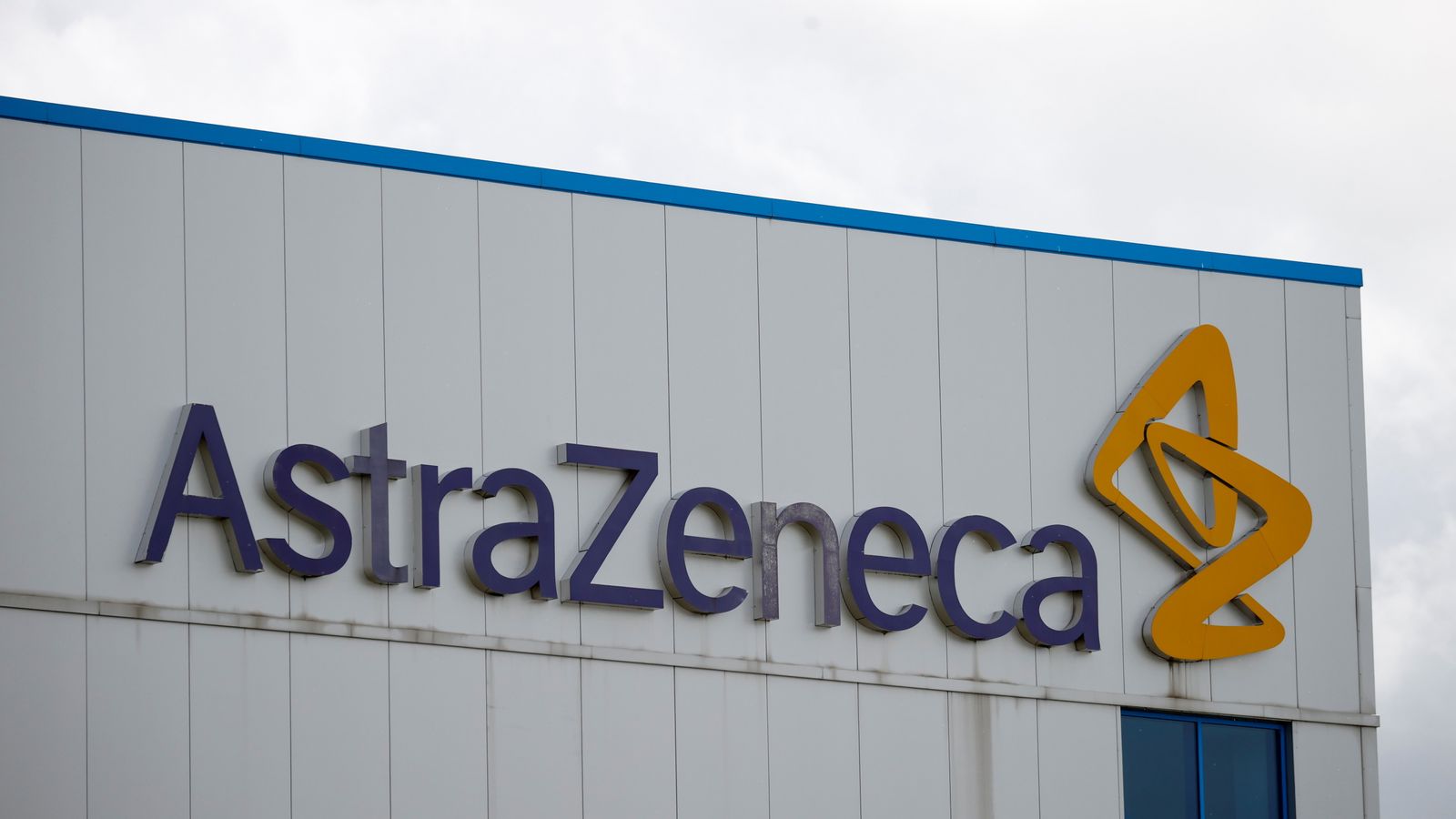AstraZeneca has always been well-known in the City and in scientific circles as one of Europe’s biggest pharmaceuticals companies.
During the last 16 months, though, it has also become a household name to millions of Britons after working with the University of Oxford to supply the most commonly-used of the various COVID-19 vaccines to be rolled out across the country.
It is ironic because, unlike its UK rival GlaxoSmithKline, AZ has never regarded vaccines as one of its core competencies.
This was underlined when the company, currently the second-largest in the FTSE 100 by market capitalisation, published its half year results today.
AZ’s sales of the COVID-19 vaccine during the first six months of the year came in at $1.169bn – yes, a huge sum, but pretty small when set against the $14.371bn that the company made from sales of other treatments and medicines during the period.
Moreover, due to the company’s decision to provide the vaccine at cost, it is adding nothing to the bottom line.
In fact, as in the first three months of the year, the vaccine is actually dragging on AZ’s earnings.
Today’s results revealed the cost of supplying the vaccine shaved 4 cents from its earnings per share in the latest quarter which, added to the cost already reported for the first quarter, means a total hit for the first six months of the year of $53m.
That is quite a contrast from AZ’s US rival Pfizer, which is seeking to make a profit from its COVID-19 vaccine and which yesterday forecast that sales for its shot would this year to reach about $33.5bn, up 30% on its previous forecast three months ago.
It must have been tempting, then, for Pascal Soriot, the chief executive, to have made capital from the contrasting approaches this morning.
He did not.
Instead, he tactfully restricted himself to saying that “colleagues at Pfizer and other companies have done a beautiful job”.
Mr Soriot also dismissed the suggestion that AZ could have made more for shareholders – as well as avoiding some criticism from around the world – by focussing on other products and steering clear of the vaccine effort.
He told CNBC: “First of all let me say how proud we are to have delivered one billion doses.
“We just reached this very important milestone, one billion doses, on a global basis for our partners, and ourselves, and we are of course working to deliver even more around the world and we have been true to our commitment to broaden equitable access.
“A large proportion, more than 60%, of our deliveries are to low-middle income countries and we’ve made a huge difference.
“Now we haven’t made any profit out of it – we said we will be at no profit and no loss and of course from one quarter to the other, we may make a few cents of loss or profit, but more or less it’s around zero.
“I think it was worth it because we made a huge contribution to global health and, you know, our people are very proud – we’ve created enormous pride inside the company – and that will carry us and serve us very well in the future.
“And, you know our results in [the second quarter of the year] show that this effort didn’t distract us, our business is doing very well.
“Our growth in [the second quarter] was very strong…so I don’t think it affected our financial performance at all.”
In fact, the company dropped some intriguing hints that vaccines may have more of a role to play in its business in future.
Ruud Dobber, head of AZ’s biopharmaceuticals business unit, told Reuters today that the company was currently exploring its options in the field.
He added: “If you ask me, ‘is the vaccines business a sustainable business for AstraZeneca for the next five or 10 years?’, that big strategic question is under discussion.”
In the meantime, today’s results emphasised how much else is going on in this business.
The story of AZ during the last decade has been how, under Mr Soriot’s leadership, the company firstly fought off an unwanted takeover bid from Pfizer in 2014, before going on to convince City sceptics it was capable of successfully converting a pipeline of promising-looking treatments into a string of blockbuster medicines, particularly in fields such as oncology.
Those products are flying.
Half year sales in total were up by 18% at constant exchange rates but, even stripping out extra sales of the COVID-19 vaccine, were up by 9%.
Within that, sales of Tagrisso, AZ’s lung cancer treatment, rose during the first half of the year by 22% to $2.5bn.
Imfinzi, a lung and bladder cancer treatment, grew sales in the half by 18% to $1.2bn.
Sales of Lynparza, a treatment for ovarian and prostate cancer, were up by 15% to $1.1bn.
Other new drugs doing well for AZ include Farxiga, its diabetes treatment, where sales in the half year rose by 53% to $1.4bn.
All of these treatments have further to grow because, in some cases, they are still only just receiving approval from regulators around the world.
For example, Lynparza only received conditional approval from China in June for its use in treating adult patients with prostate cancer.
In total, revenues from new medicines rose by 27% during the half year, while they now represent 54% of AZ’s total sales.
Half year pre-tax profits as a whole rose by 25% to $2.4billion.
Meanwhile, last week saw AZ complete its $39bn takeover of the US biotech company Alexion, which was disliked by some shareholders when it was announced in December last year.
The takeover, described by Mr Soriot today as “an enormous milestone”, is seen by the company as helping it develop more new products in the fields of rare diseases and immunology.
And to think some people only know this business for its COVID-19 vaccine.






















